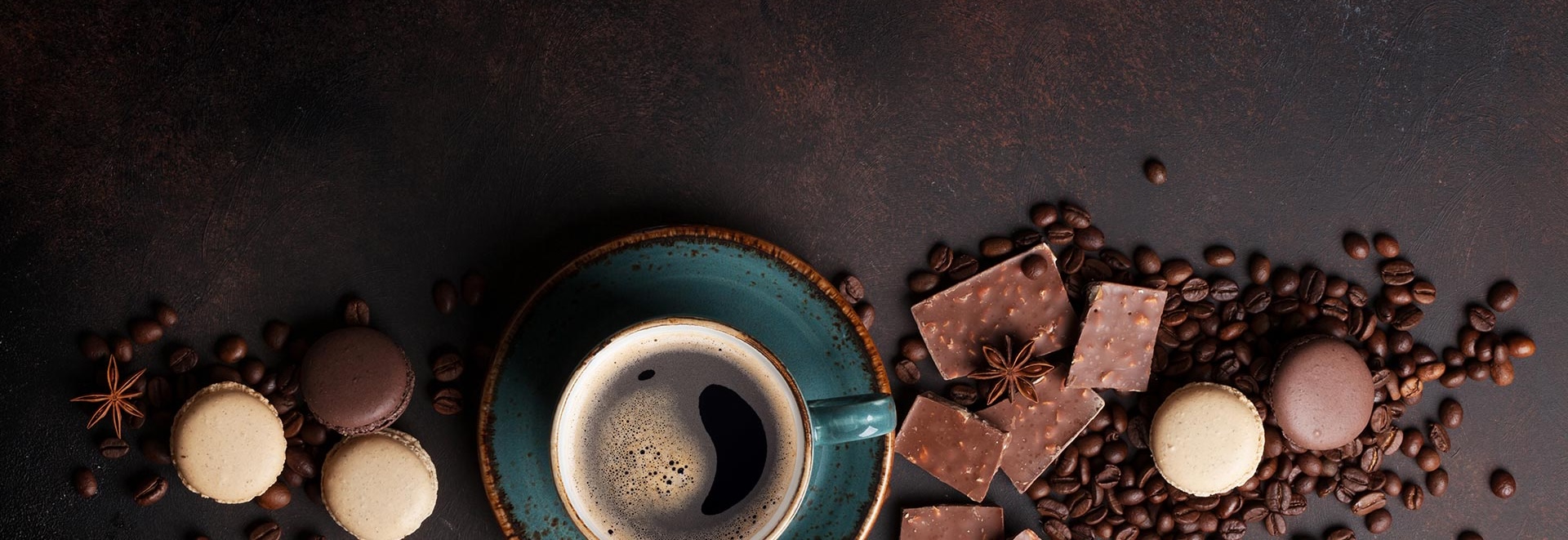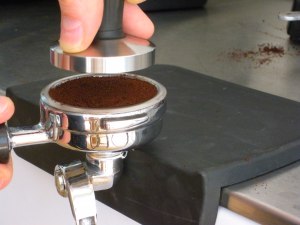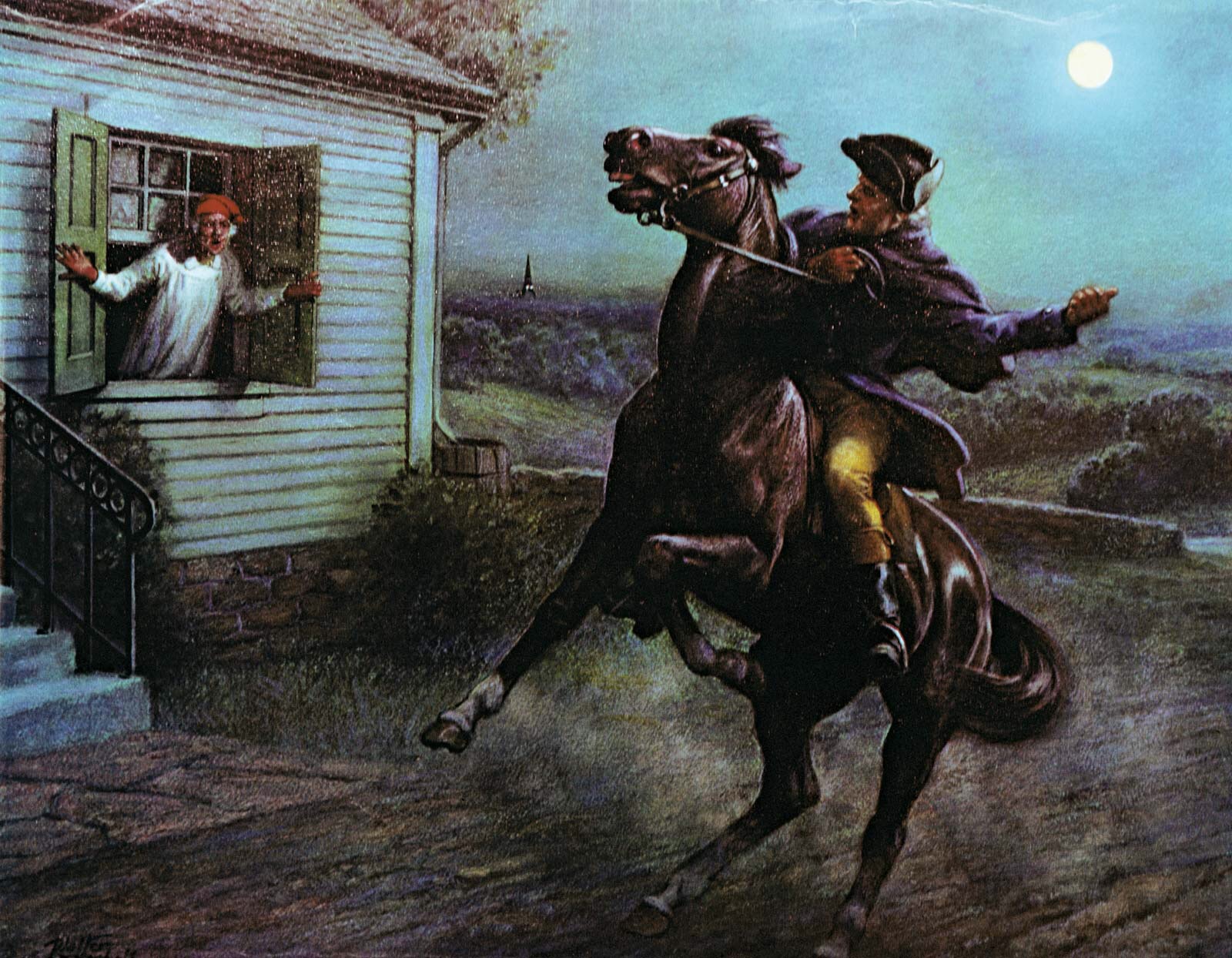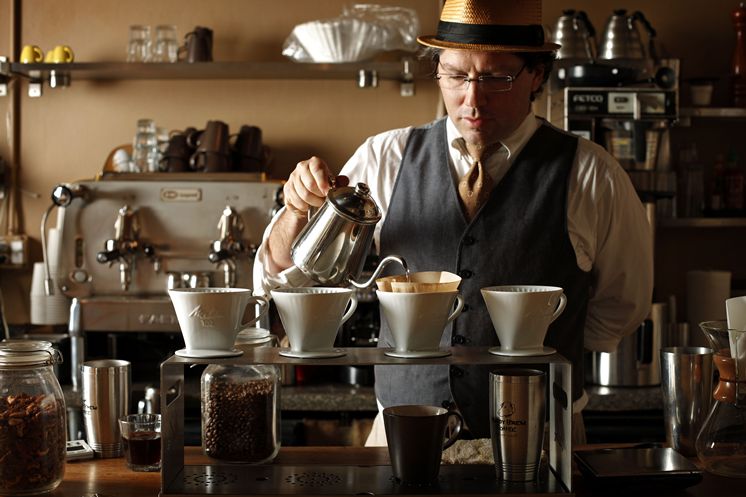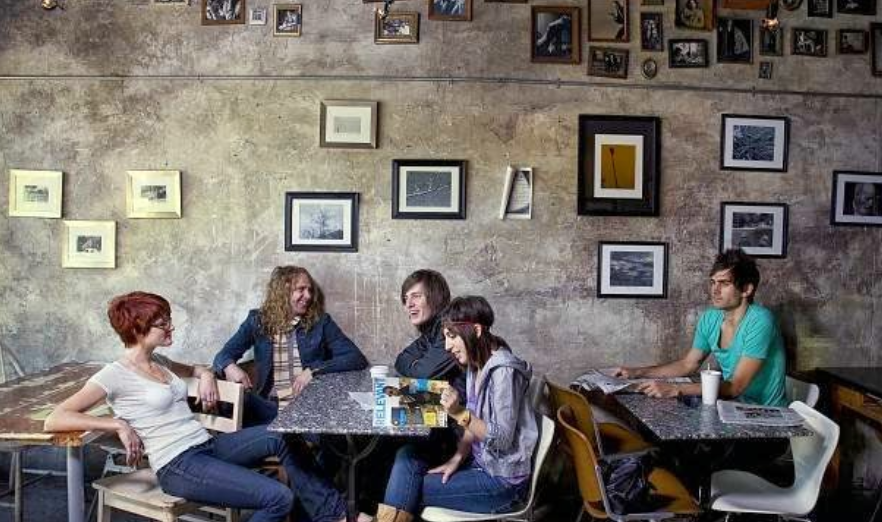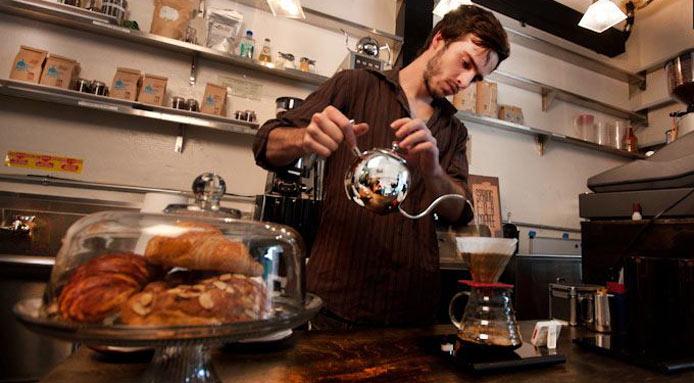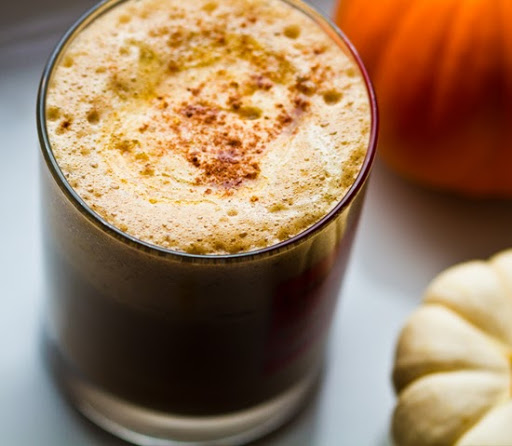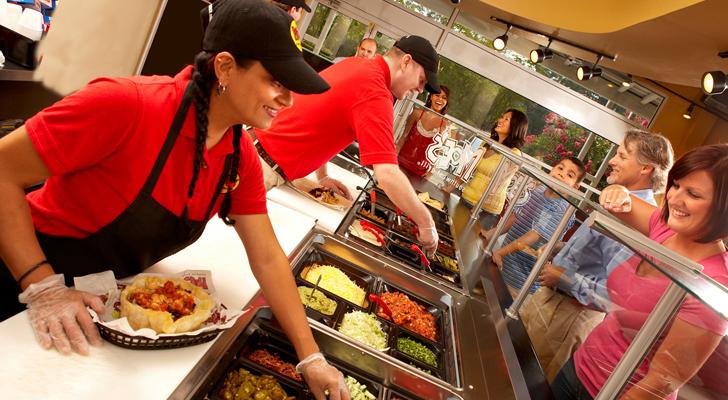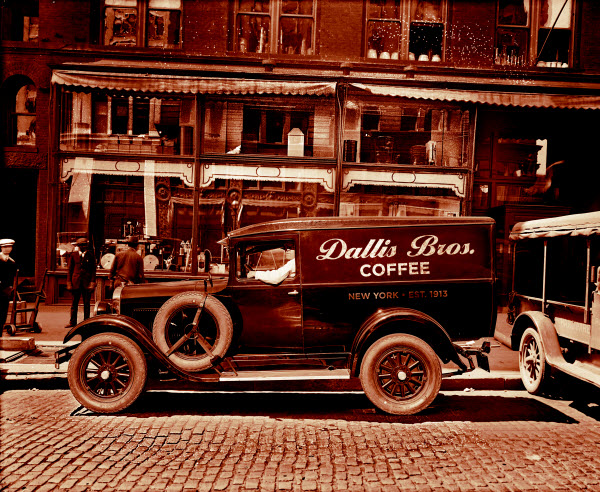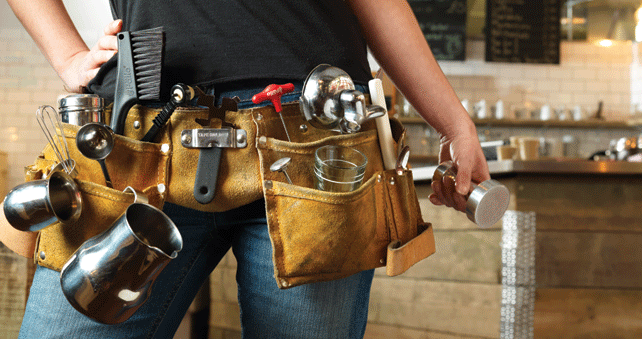How to Make Impressive Espresso
Anyone who has worked in coffee understands that teaching a new employee to finagle a palatable shot of espresso is about as difficult as trying to teach a toddler violin; anyone can press a button on an espresso machine and hope for the best (we can think of one corporation with a big green sign that fits this category), but only the rare committed individual can master the barista trade. Here at Silver Service, there
The Ride of the Bissell Tea Company
Here are two poems that correct the false history propagated in Longfellow's poem by acknowledging Israel Bissell as a hero of the Revolutionary War. Israel Bissell’s Ride by Gerard Chapman Listen, my children, and you shall hear Of Israel Bissell of yesteryear: A poet-less patriot whose fame, I fear, Was eclipsed by that of Paul Revere. He lacks the renown that accrued to Revere For no rhymester wrote ballad to blazon his fame; But Bissell accomplished—and isn’t it queer?— A feat that
Will the “Third Wave” Coffee Shop Last? Part 3: The Final Verdict
Having looked at “The Good” and “The Questionable” aspects of the Third Wave movement, let’s try to piece together a projection of what the future of these shops looks like, and what it will take for the ones that already exist to enjoy further success.
Will the “Third Wave” Coffee Shop Last? Part 2: The Questionable
Few are willing to deny the positive values held dear by third wave café owners, yet from a perspective seasoned in business and attuned to the history of local food service, the third wave coffee shop very well may be temporary phenomena. Here are some facts that hinder this wave from carrying the societal clout it strives for.
Will the “Third Wave” Coffee Shop Last? Part 1: The Good
If you have encountered a young person—usually with a handlebar mustache, a cardigan, a smattering of tattoos, and a knack for thrift shopping—who has proceeded to tell you about a new coffee shop in an artsy part of the city you live in, he or she was probably referencing what is now known as a “third wave” coffee shop. You've probably heard of cafés like it before; they usually serve fair trade coffee, offer gluten-free pastries, and are more expensive than your run-of-the-mill coffee spot. In the worst case scenario, the young person you encountered might have scoffed at your frequent Starbucks runs and your cup of Folgers every morning. In the best case, they encouraged you to visit their favorite café because they enjoy the environment, the coffee, and the values the business boasts. The patrons of these budding establishments are often referred to as “hipsters,” but the interesting fact is that they aren't just a fringe demographic; their values correspond with the values of millennial consumers as a whole. Those born between 1980 and 2000—the peak ages for specialty coffee drinkers—show marked concern for the environment, healthy growth of the economy, and gravitate towards companies committed to good citizenship. These are the frequenters of the third wave coffee shop. So all of us longstanding coffee industry participants need to ask ourselves, is the third wave here to stay? In what ways is the tide changing? Let’s take a look at what good has come from this movement to see if this style of café will long endure.
Three Healthy Green Drinks You Can’t Live Without
It's easy to get lost in the ever changing menu boards of your local café, especially when you're trying to make a healthy decision. Many options can be tailored to fit your lifestyle's needs, but end up falling short in the taste category. There are plenty of reasons why we associate green foods with holistic well-being; they often contain a hefty amount of antioxidants, are low in calories, and high in phytonutrients. Well, green drinks are no different, and they won't taste as leafy as some of their edible companions. Here are three drinks that you may be familiar with, but that are definitely worth giving a second look and taste.
Step Aside Pumpkin Spice Latte, There are 5 New Fall Drinks in Town
Autumn is a time of rituals. Some traditions are necessary, like the switch from swimsuits to sweaters because of the gradual drop in temperature (depending on where you live) and some are subconscious like the annual biking to work everyday because it’s-just-so-darn-nice outside. Some are bizarre like the Zozobra Festival in Santa Fe and some are so natural it is impossible to imagine the months September to November without them. One tradition that is quickly being inducted into the last category is the Pumpkin Spice Latte. People come out of the woodwork for that stuff. You’ll be hard pressed to find a coffee shop without it. Well, we think it’s high time to expand all of our colorful leaved horizon and give some other Autumnal drinks a chance of entering the seasonal canon. Here are some autumn flavors you may not have given a chance yet. As you’ll soon find out, Maple, Pumpkin, and Spice are the words that will sustain you through Halloween and Thanksgiving. Here are 5 unconventional ways to mix up your fall lineup.
Is Your Cafe Fast Casual or a QSR?
Depending on where you live, you probably notice a new concept restaurant opening in your area about once a month. Most of these new restaurants find a comfortable niche location within a strip mall on highly trafficked street and fit the recently defined genre of “Fast Casual Dining.” This label refers to businesses like Chipotle, Noodle’s and Company, and Five Guys Burgers and Fries. The aforementioned restaurants have achieved great success because they have responded to a market audience that desires higher quality (often healthier) food, at a faster pace and relatively low cost. These businesses are the fastest growing segment of the restaurant industry for good reason. On the other hand, there is the long established category of restaurant known as “Fast Food” or “Quick Service Restaurants” (QSRs) that also achieve comfortable, if not dramatically lucrative, profits. The most successful of these have a strong brand identity and thrive on providing consistent, rapid, low cost dining experiences. Both styles of restaurant can readily be compared to specialty coffee and tea shops respectively, and it is important for you to have a clear concept for your business to achieve its maximum potential. Hopefully you may find that one of these models can help achieve a more unified approach to brand identity in your unique cafe. It is important to note that neither of these examples is the “right way” to run your cafe, you will want to evaluate the criteria for both and see if either concept matches your café more closely.
3 Reasons Small Distributors are Necessary for Your Business
No small business is an island. Every business depends on the goods and services of other businesses. Distributors specifically can be valuable small business partners if you utilize their full potential. You'll remember our two friends from our previous article "Five Buck Chuck" and "No Slip Chip." They each have different perspectives on their cafe's role in the business ecosystem, specifically when relating to wholesale distributors. Chuck, as you may recall, spends several hours each week running to and from a large wholesale supplier. He receives a couple of small deliveries for milk products and baked goods each week, otherwise he retrieves supplies himself on his own time. He wants to save as much money as possible so he rarely researches new products that could be used or sold in his cafe. For this reason, his menu rarely changes and many of his products have become outdated. Chip, on the other hand, has a healthy relationship with his various vendors. He uses a couple different companies but has one that delivers most of his supplies once a week. He rarely has to worry about adjusting his orders, and when he does, he is ordering more of a product that is selling better than he expected. Unless the cafe is overwhelmingly busy, he gladly talks with his vendors when they call or visit and thoughtfully considers the products they present. Here is why Chip places value on his relationship with small distributors.
Five Buck Chuck or No Slip Chip: Which Type of Manager are You?
Without a doubt, the capital sin of small coffee retailers that keeps their businesses from healthy growth is an ongoing effort of trying to "buy their way to success." This might sound good in theory and seem natural to many managers, but these individuals tend to cling to their hard earned dollar so tightly that they neglect the potential fat-walleted customer who would gladly become a loyal patron given the proper motivation. Having worked with many different managers, we have concluded there are two types of coffee shop managers personified by Five Buck Chuck and No Slip Chip.

